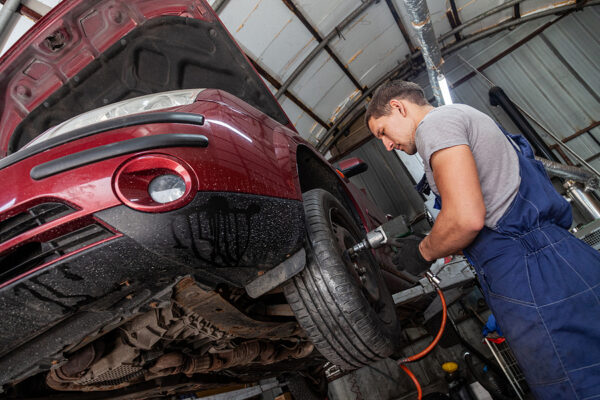How Weather Affects Wheel Bearings: Protect Your Car in Any Season

For a car to operate smoothly and effectively, wheel bearings are essential. Their main purpose is to facilitate smoother rotation by lowering friction between the wheel and axle. However, different weather conditions can have a big impact on wheel bearing longevity and performance. The effects of heat, cold, and moisture on wheel bearings are examined in this article along with protective measures that car owners can take.
The Impact of Heat
High temperatures, especially summer heat, can harm wheel bearings. Too much heat can damage and weaken bearing grease lubricants. Overheating and early bearing failure result from lubricant degradation and friction. Hot weather can cause wheel bearing failure, so drivers should watch for odd noises, vibrations, and overheating indicators like smoke or burning smells.
The Dangers of Cold Weather

However, extreme cold temperatures present distinct wheel bearing challenges. Low temperatures can thicken lubricating oil, reducing friction. This may restrict bearing motion and increase wear. Snow or ice in the tire wells can also strain the bearings when driving. In winter, wheel bearings must be inspected and maintained to avoid costly repairs and unsafe driving.
Moisture and Its Consequences
Moisture is a major wheel bearing concern year-round. Weak gaskets or seals let water into bearings, causing rust and corrosion. This is especially problematic in wet or humid areas. Rust weakens bearings, causing them to seize or decline quickly. Moisture can degrade lubricants over time, increasing wear and strain. Maintenance, including lubrication and sealing inspections, prevents moisture issues. You can go for the Auto Repair in Savannah, GA based services for proper addressing.
Temperature Fluctuations
Wheel bearings might also suffer from temperature changes. Sudden temperature variations can cause bearing materials to expand and compress. Variations can cause component loosening, misalignment, and failure. Frequent temperature variations, especially in irregular weather, can worsen bearing wear. Monitoring temperature variations and scheduling periodic checks helps reduce their impact.
Signs of Wheel Bearing Issues
Maintaining the health of your car requires knowing the warning signs of approaching wheel bearing problems. When turning or accelerating, noises like humming or grinding are frequently the first signs that something is amiss. Excessive wheel play or vibrations felt through the steering wheel are additional possible signs. It is imperative that you have your car inspected by a professional if you see any of these symptoms. Repairs that might prolong the life of your wheel bearings are made possible by early problem identification.
Conclusion
Frequent maintenance is essential to shielding your wheel bearings from bad weather. Numerous weather-related problems can be avoided by routine inspections, prompt lubricant refills, and making sure seals are intact. Being proactive about where and how you drive can also be beneficial; avoiding rough terrain and deep water can lower the chance of dampness and bodily harm. Ultimately, you can prolong the life of your wheel bearings and ensure safer and smoother rides in any conditions by being aware and attentive.







